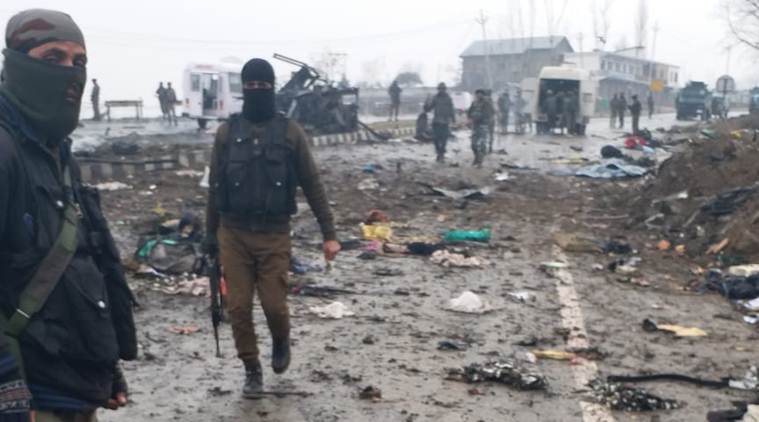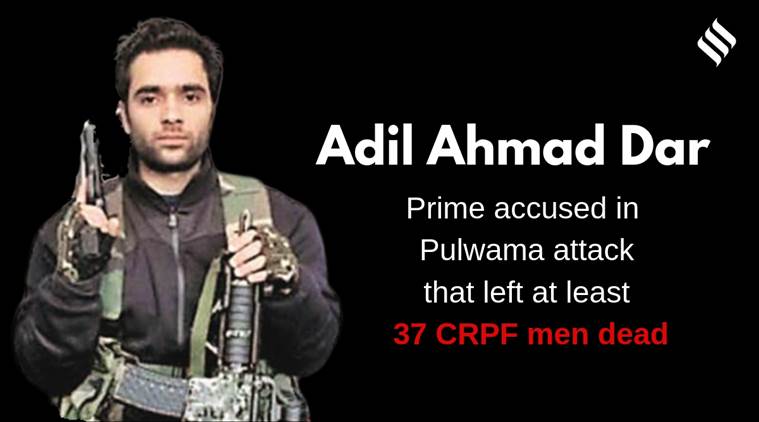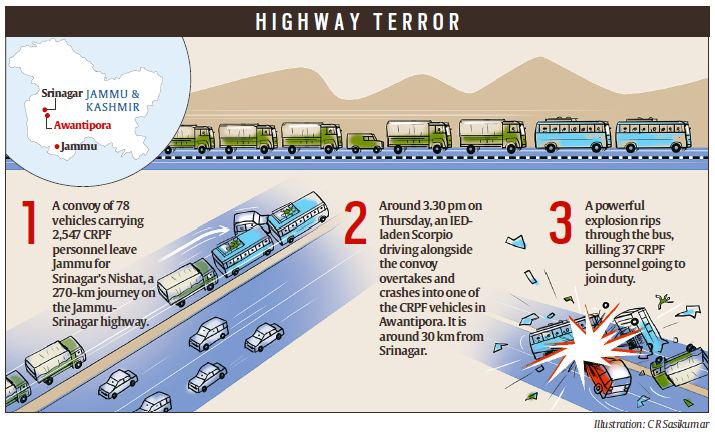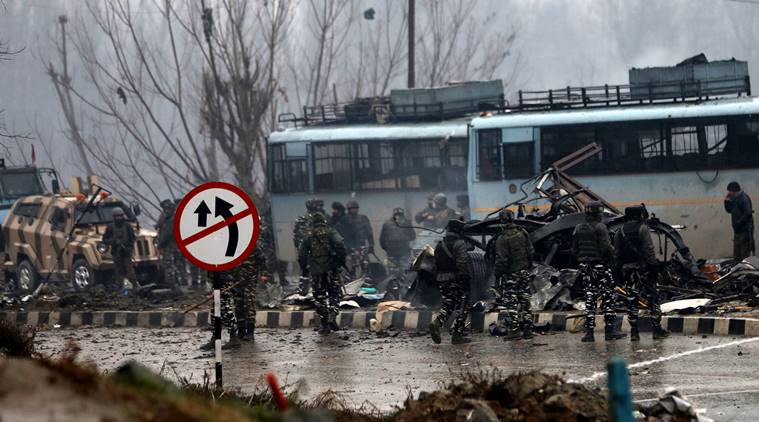
Thursday’s suicide attack by Masood Azhar’s Jaish-e-Mohammad marks an unprecedented escalation in its efforts to take the centrestage of militancy in the Kashmir Valley. This year alone, it has been responsible for as many as a dozen attacks in the Valley, two in Srinagar on the eve of Republic Day.
VIDEO | Modi says terrorists will pay for Pulwama attack, Oppn backs govt
The return of the Taliban to the political table in Afghanistan — its talks with the US and Pakistan were announced Wednesday — and China’s repeated stalling of efforts by India and the US to blacklist Azhar have boosted Jaish’s three-year-long campaign to revive itself in Jammu and Kashmir after a protracted lull.
LIVE UPDATES: At least 37 CRPF men killed in Pulwama attack
To that effect, Azhar even sent his two nephews to the Valley: Talha Rashid, who was killed in October 2017, and Usman Haider, who was killed a year later.
Jaish’s first major strike that pushed India and Pakistan to the brink of war was the 2001 Parliament attack. In January 2016, it was behind the attack on the Pathankot airbase in which seven security personnel were killed. And the September 2016 Uri attack in which 20 soldiers were killed. New Delhi subsequently responded with a surgical strike across the LoC.

Car bombing is not new to Jaish. In the spring of 2000, 17-year-old schoolboy Afaq Ahmad drove an explosive-laden Maruti into the headquarters of the Army’s 15 Corps in Srinagar. The car exploded at the gate as the boy panicked. This announced the entry of Jaish, then newly formed by Maulana Masood Azhar who was released in 1999 by the then Vajpayee government in exchange of the crew and passengers of the hijacked IC-814 plane at Kandahar.
After the schoolboy, Jaish sent a 24-year-old British citizen in an explosive-laden Maruti car right up to the entrance of the Army’s 15 Corps headquarters on Christmas Day. In 2005, a Jaish woman suicide bomber blew herself up in Awantipora.

The Pak-based Jaish — Azhar is based in Bahawalpur — has its umbilical cord linked to the Taliban. Soon after 9/11, when Islamabad sided with the US, Jaish took it on. In fact, the Jaish suicide attack on the J&K Assembly in Srinagar soon after 9/11 that killed 23 was the first attack in Kashmir to be officially condemned by Pakistan.
Jaish’s problems with the Pak establishment were exacerbated after its two assassination bids on then President Pervez Musharaf in 2003.

Around this time, Jaish was losing ground in the Valley for two key reasons: it lost support from Pakistan and intelligence agencies here had infiltrated its ranks. In early 2004, for example, virtually the entire top brass of Jaish in Kashmir was killed at a meeting in Lolab. With the help of moles, police aborted Jaish’s efforts — Sajad Aghani, Jaish Kashmir chief, was killed in March 2011.
A local militant commander who played a crucial role in its revival was Noor Muhammad Tantray alias Noor Trali who was killed on December 25, 2017 in Pulwama.
Trali was replaced by Pak national Mufti Waqas. On December 31, 2017 two suicide bombers struck at the CRPF training camp killing five security personnel. Both were local recruits: a Class X student and son of a policeman from Tral and a taxi driver from Pulawama. In March 2018, Waqas was killed in Awantipora.
At the same Lethpora, and with CRPF its target again, Jaish struck on Thursday. With the US announcing its decision to scale back its presence in Afghanistan and the frozen nature of the India-Pakistan relationship, Jaish once again hopes to push both countries to the brink.